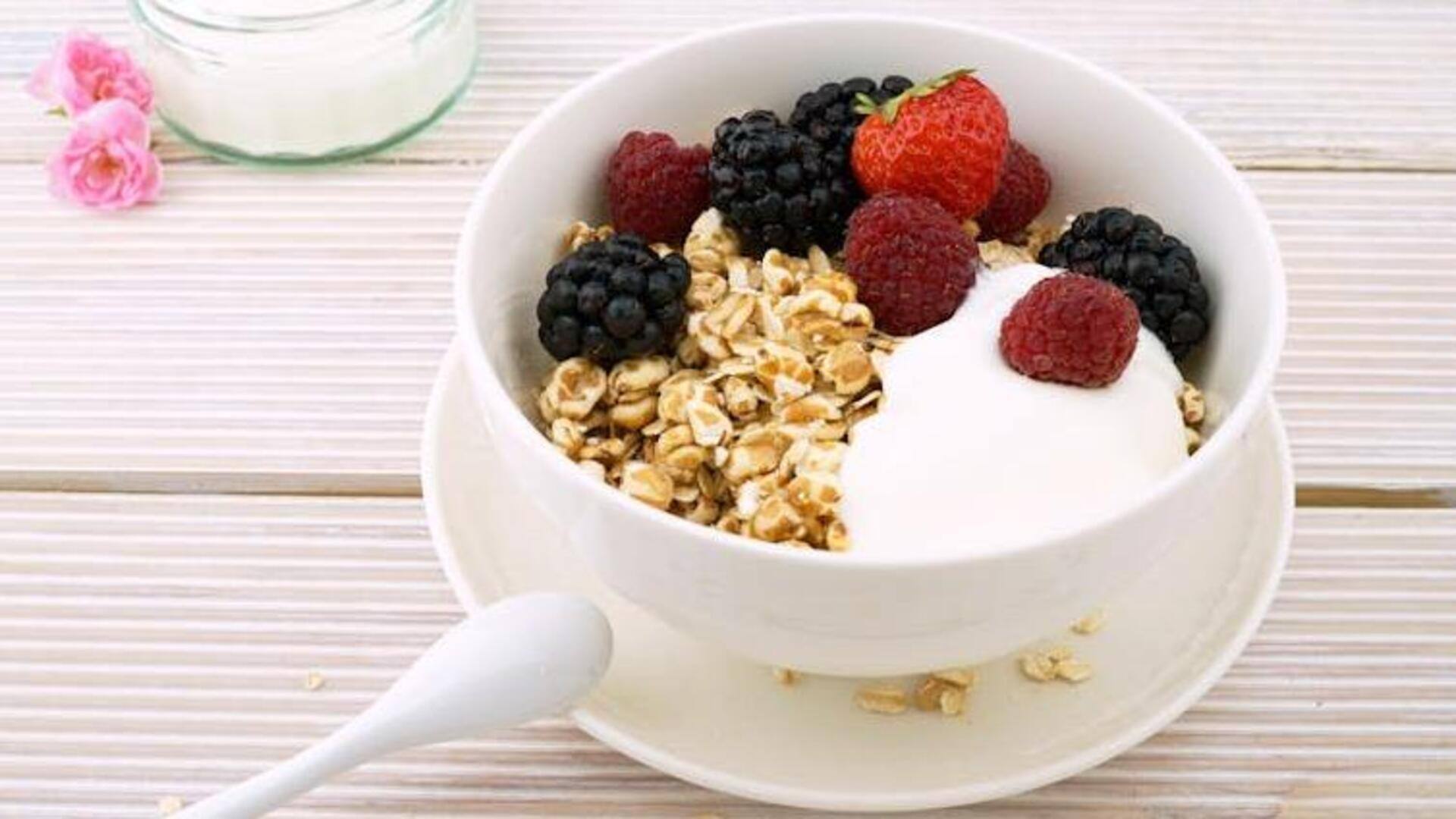
5 fermented foods that add probiotics to your meals
What's the story
Fermented foods have been an integral part of several cultures for centuries, providing not just distinct flavors but also health benefits.
These foods are packed with probiotics, or good bacteria, that promote gut health.
Adding fermented foods to meals can naturally increase the probiotic content of your diet.
Here, we look at five fermented foods to naturally enrich your meals with probiotics.
Dairy delight
Yogurt: A creamy probiotic source
Yogurt is perhaps one of the most popular fermented foods out there.
This creamy and tangy treat is prepared by fermenting milk with certain bacterial cultures- specifically Lactobacillus bulgaricus and Streptococcus thermophilus.
The fermentation process increases probiotic content, making yogurt an excellent option for promoting digestive health.
Adding yogurt to breakfast or snacking on it can be an easy way to amp up daily probiotics.
Cabbage classic
Sauerkraut: Tangy cabbage ferment
A traditional German dish, sauerkraut is finely shredded cabbage fermented by lactic acid bacteria.
The fermentation process preserves the cabbage, but also boosts its nutrition by adding probiotics.
The tangy flavor of sauerkraut makes it a great addition to salads or sandwiches, or as a side dish to go with other meals.
Korean favorite
Kimchi: Spicy Korean staple
Kimchi is a staple in Korean cuisine famous for its spicy and bold flavor profile.
It usually features napa cabbage and radishes seasoned with chili pepper, garlic, ginger, and other spices and fermented.
The fermentation process makes kimchi rich in beneficial probiotics while also offering vitamins A and C along with fiber.
Kimchi can be eaten as a side dish or added to soups and stews.
Soybean specialty
Miso: Savory soybean paste
Miso is a classic Japanese seasoning made by fermenting soybeans with salt and koji mold (Aspergillus oryzae).
The resulting thick paste is used to bring umami flavor to soups, sauces, marinades, and dressings.
Miso also has live enzymes that help with digestion, and probiotics that promote gut health if consumed raw or lightly cooked.
Protein powerhouse
Tempeh: Protein-rich fermented soybean cake
Tempeh, which hails from Indonesia, is an important protein source for vegetarians.
It is made by fermenting soybeans with Rhizopus oligosporus fungus to form firm cakes.
The process increases bioavailability of nutrients, including B vitamins like B12, making tempeh a healthy plant-based protein option ideal for various cooking methods, from grilling to baking.